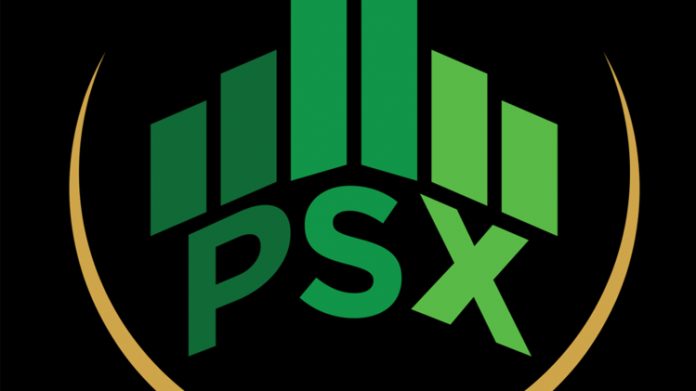LAHORE:
In a unanimous decision, the Supreme Court (SC) has disqualified Prime Minister (PM) Nawaz Sharif in the eagerly awaited Panamagate verdict today. This is the third time Nawaz Sharif has left PM office prematurely.
Additionally, the SC has also recommended a fresh investigation by the National Accountability Bureau (NAB) in PM Nawaz Sharif’s involvement in the Panamagate case. In this regard, the apex court has ordered NAB to file the reference in the Panamagate case within six weeks.
Uncertainty is a nightmare for capital markets. The index had earlier plummeted 1,148.60 points within the first forty minutes of trading from its overnight close of 45,906 points on Thursday.
Later, the KSE-100 index was trading at 45,186.28 points and had fallen 719.48 points by 12:10 pm.
Almost 48.5 million stocks worth Rs3.9 billion had been traded until 11:30 am. And 38 out of a total of 298 stocks traded had advanced, while 251 decreased.
According to a note by issued after the SC’s decision of disqualifying PM Nawaz Sharif, AKD Securities said “The market has been under pressure since the opening bell today, losing 2.57 per cent in intraday trading before recovering to close 1.59 per cent down before the prayer break. A sharp knee jerk reaction in the second session today cannot be ruled out as uncertainty regarding PML-N government’s future course in this backdrop can dampen sentiments.”
However, the day which started with investors confused ended with the benchmark KSE 100 index at 46,000 level. The index nosedived to 44,235.94 with a 1,669.82 points loss at open of the second session but recovered all losses in the same. It recorded intraday high of 46,060.55 with a gain of 154.79 points.
The KMI 30 saw a rise from low of 4.21 per cent up 0.14 per cent to land at 78,379.50. The KSE All Share Index added 142.21 points to its bag with 213 advancers and 134 decliners
Recovering from the nosedive earlier, the benchmark finally settled 6 points in green.
The palpable rise and fall are depicted in the graph below:

Market participants returned to the market and volumes ticked 327.46 million. 49 per cent of total volumes were witnessed in scripts pertaining to the KSE 100 index. Azagard Nine Limited (ANL +6.70 per cent) led the chart with 24.94 million shares exchanged.
Earnings announcement flew in from Security Papers Limited (SEPL -4.10 per cent) for the year ended June 30, 2017. The management reported a surge of 10 per cent in sales which pushed gross profit margins up from 33.93 per cent to 38.30 per cent.
Operating profits inched higher from Rs 6.24 million to Rs 7.88 million which along with increased other income pushed net profits up by 48.63 per cent. Earnings per share clocked at Rs 15.82. The script which topped up by 43.17 per cent in the last year closed lower.
Siemens Pakistan Company Engineering Limited (SIEM +4.97 per cent) traded on day’s maximum possible price after it made financials for the third quarter public. The company registered a growth of 23 per cent in sales since the previous quarter. This was a rise of 37 per cent from the same period last year. Earnings per share jumped from a loss per share of Rs 31.40 in 3Q FY16 to Rs 31.94.
I.C.I. Pakistan Limited (ICI +2.31 per cent) and Exide Pakistan Limited (EXIDE -0.01 per cent) are expected to declare results in pre-open on Monday. Later in the day Fauji Fertilizer Company Limited (FFBL -0.22 per cent), Lucky Cement Limited (LUCK -4.64 per cent) are scheduled to announce results.
The looming uncertainty and political instability which has rocked the PSX since its inclusion into the MSCI Emerging market since June has caused a see-saw effect on the stock market.
On July 5th Pakistan rupee fell sharply both in the interbank and kerb market to reach a 2.5 year high of Rs 108 from Rs 104.91 Tuesday. The PKR had remained relatively stable since August 2015, and according to a Topline Security report, the currency has devalued annually by 5 per cent in the last decade or so.
Earlier this month investment website ValueWalk had reported that the Pakistan Stock Exchange (PSX) suffered its worst performance in June since 1999. It had been proclaimed the best performing stock market of 2016 in Asia with an astounding return of 46pc.
As per research released by the International Journal of Accounting and Economics Studies on the stock market fiasco, which cited that political events and performance of the PSX were closely interconnected. The research conducted into three previous elections by this think-tank revealed that political events in the country can have a significant impact on stock returns. It went onto mention that before elections in 2002 and 2008, the stock market had experienced a steep level of uncertainty in comparison to 2013 when it surged after the PML-N came into power.




